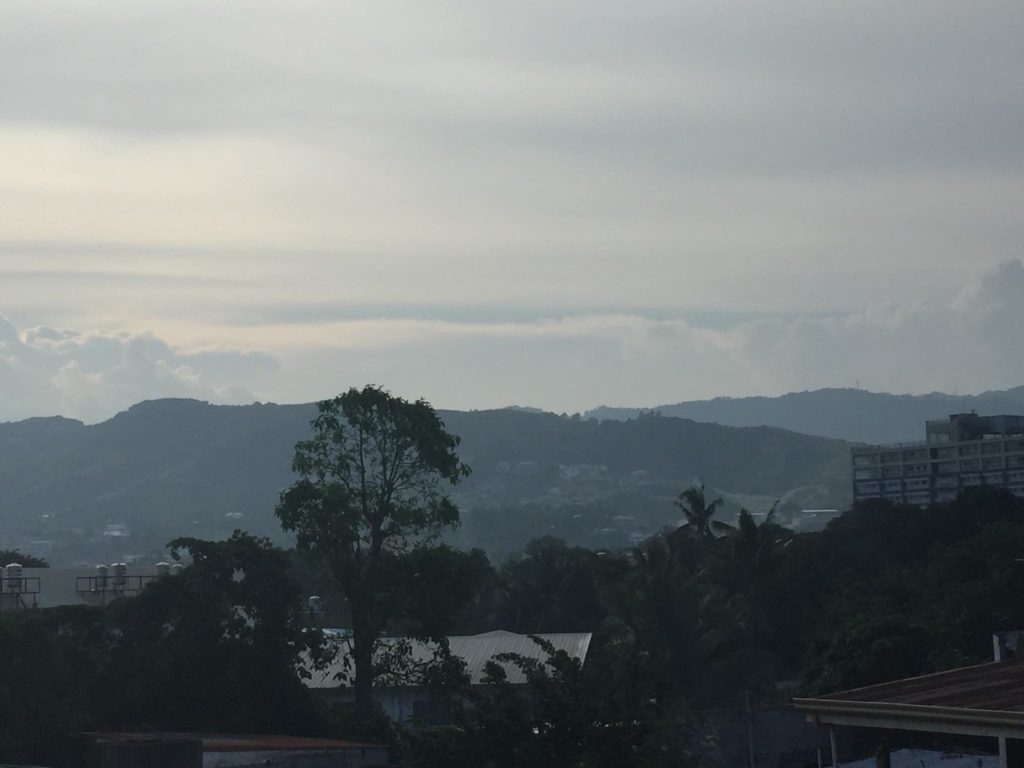Did haze cause female college student’s demise in Cebu?

Some settlements in Barangay Guadalupe in Cebu City seems veiled by the haze that hovers the city in this photo taken 4 p.m. today, September 23. CDN Digital photo | Rosalie Abatayo
CEBU CITY, Philippines —The Department of Health in Central Visayas (DOH-7) is not confirming reports that a female college student from Cebu did indeed die because of the haze that blanketed Metro Cebu in the past days.
Regional Director Dr. Jaime Bernadas said the case of the girl, which is making rounds in social media, could be isolated.
“I presume isolated ni with a severe exposure to allergen that triggered the status asthmaticus (if asthma gyud ang cause of death). That still shall be determined pa,” Bernadas said in a message to CDN Digital.
The female college student in Cebu reportedly passed away due to severe asthma attack on the evening of Friday, September 20, 2019. There are speculations in social media that haze had a role in her demise.
DOH has earlier cautioned he public, especially those who have respiratory conditions, to take preemptive measures and protect themselves from the haze coming from forest fires in Indonesia.
Read more: EMB-7 tells public to take safety measures as Indonesia haze reaches Cebu
The Department of Environment and Natural Resources – Environmental Management Bureau in Central Visayas (DENR-EMB 7) confirmed last September 18 that the air quality in Cebu has been in an unhealthy level due to the haze purportedly coming from the forest fires in Indonesia.
Read more: Particle measurement for Cebu haze drops but still above normal
The EMB-7 is monitoring the amount of Particulate Matter (PM) 2.5 that is suspended in the air. Because PM 2.5 is very minute, it is likely to stay longer in the air and has the tendency to be inhaled by humans and animals.
Read more: Why haze is dangerous?
Based on the September 22 advisory of EMB-7, the agency said the amount of M 2.5 suspended in the air has already returned within the guideline level of 50 micrograms per normal cubic meter of air.
Disclaimer: The comments uploaded on this site do not necessarily represent or reflect the views of management and owner of Cebudailynews. We reserve the right to exclude comments that we deem to be inconsistent with our editorial standards.
